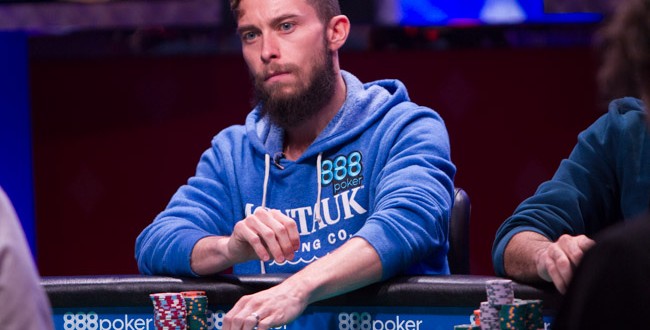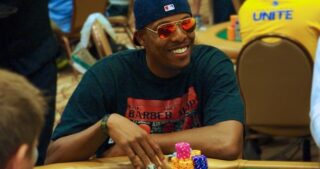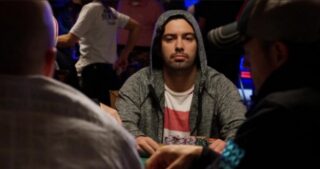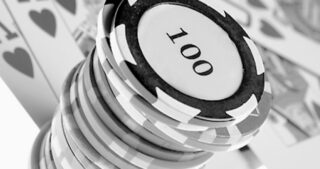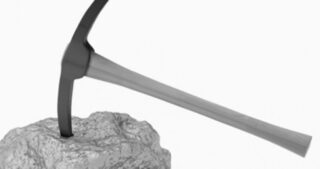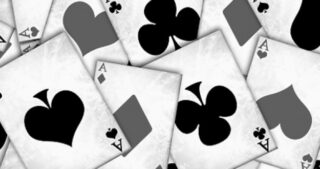Most every amateur player gives off some form of physical tell while playing poker. The key is to know what to look for regarding tells and how to decipher them.
Below are five common physical tells you will see from poker players at the tables and how you can interpret what they mean
1. The Chip Glance
One potential sign of huge strength from an amateur player is the "chip glance." This takes one of two forms.
For example, the flop falls with an ace or a king and your opponent quickly glances at his chips. Chances are that the flop hit them hard and now they want to bet into the pot.
Another version, and often a dead giveaway that the player has a monster, is when part of the board is dealt and they immediately glance at your stack. What this means is that either they are trying to figure out how much of your stack they can get or they are planning to try to stack you.
If an amateur performs the chip glance, tend to give them credit for a big hand.
2. The Card Check
This tell is pretty standard and one you may have already heard about. It involves the players looking at their hole cards again once a part of the board is dealt.
For example, two hearts come on the flop and your opponent checks their cards. They are usually checking to see if they have hearts. Most beginning players are going to remember rank of cards over suits and when they check their cards, they are doing a suit check.
Another time this tell can work for you is on the river. If an opponent checks their cards here, they are looking to make sure they haven't overlooked something that can help them win.
If a flush or straight hasn't come through, they are looking to see if there is any reason to continue in the hand. In many cases a bet will take the pot right here. Adversely, if you bet on the river and they start checking their cards, you can expect a fold a high percentage of the time.
3. The Pause
New players will often try to "look the part" when they are at the poker table. They will try to learn how to chip shuffle and mimic the actions of others they see playing.
Sometimes you will notice the moment when a board hits these players by watching for a momentary pause in their actions. For example, a beginning player momentarily stops shuffling their chips prior after the flop is dealt.
This is essentially an "I just hit the flop" moment for the player and they are often going to bet or raise.
4. Nervous Shaking
This physical tell is most useful on inexperienced players. For some players, a rush of adrenaline will cause them to physically shake at the poker tables.
Depending on the player, this is for one of two reasons. The first is that they have a big hand and the second is that they are bluffing.
Distinguishing between the two can be tough but the default read should lean towards them having a monster hand.
A personal example is one time I flopped quad jacks and each time I bet, my hand was shaking uncontrollably. Half of the table noticed and when I showed quads, the table knew what to look out for.
Fortunately, I had a way to combat this tell but it was a tell in its own right.
5. Change of Betting Motions
Referring to the prior instance regarding nervous shaking, you may notice some players suddenly changing the way they act during a hand at the tables. This is usually in response to some other physical tell that they are well aware of.
I mentioned how I shook when my adrenaline was up. Later, I noticed that it was my right hand and arm that did this and that I could control my left hand much better when my adrenaline was up.
So when I had a big hand, I started to bet with my left hand. An astute player should have noticed this and treated it just like I was shaking.
Note: Beware of False Tells
Before I close, the matter of false tells should be addressed. Smart players are well aware of various physical tells and will often try to trick their opponents by exhibiting these traits.
When these players are around players they don't know, these tricks work. However, if you know this player is experienced, don't fall for them. In most cases with experienced players, take Mike Caro's advice regarding tells in that "weak means strong and strong means weak."
